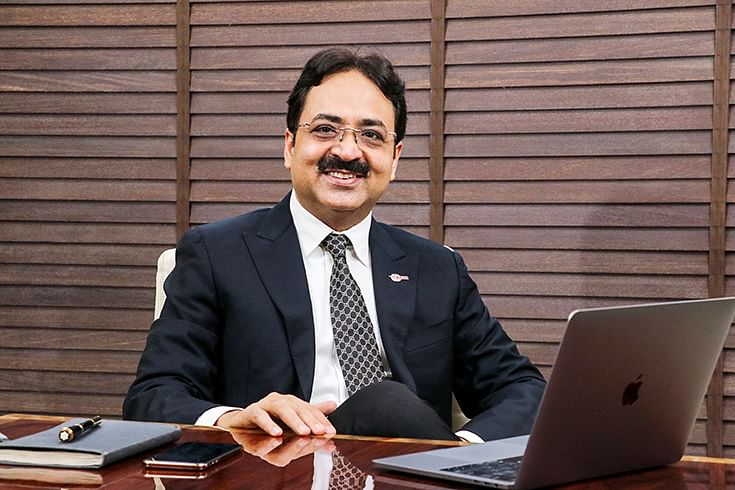India Auto Inc welcomes Vehicle Scrappage Policy
The scrappage policy is expected to give a huge fillip to automotive sales in India.
Various stakeholders of the Indian automotive industry have welcomed the official announcement of the Vehicle Scrappage Policy. Nitin Gadkari, the Minister for Road Transport & Highways (MoRTH) today provided the details and incentives of the Vehicle Scrappage Policy as the government looks to encourage users to trade their old polluting vehicle for new cleaner and efficient vehicles.
The Road Transport Ministry highlighted that the, "objectives of the policy are to reduce population of old and defective vehicles, achieve reduction in vehicular air pollutants to fulfill India’s climate commitments, improve road and vehicular safety, achieve better fuel efficiency."
Welcoming the policy, the Society of Indian Automobile Manufacturers (SIAM) said: “The benefits to environment and safety of a sound system of removing unsafe or unfit vehicles from the road have been felt strongly by all stakeholders. The most important step is to build an infrastructure of testing and scrapping centres fast all over the country and SIAM will work on this front with the government. Mandatory scrapping of over 15-year-old government vehicles from April 1, 2022 is a step in the right direction."
SIAM also plans to engage with the Ministry of Road Transport & Highways and work together on the scheme in greater detail on issues like:
- The best way to expedite testing infrastructure in a sustainable and scalable manner.
- The possibility of starting the fitness testing much earlier in the life cycle of the private vehicle, as is done in developed countries.
- The scope of mandatory fitness-based de-registration vs voluntary incentive/disincentive-based scrapping.
- Incentives for encouraging scrappage.

Vinkesh Gulati, president, Federation of Automobile Dealers Associations (FADA) pointed out that, “Indian automobile industry has already upgraded to one of the most advanced emission standards. While new vehicles will be least polluting, vehicles which are old creates enormous pollution with least safety standards will now be eligible for scrappage thus making roads safer and air cleaner. The guidelines and advice announced today are in the right direction and now, the state governments and OEMs have to do their part to make it a success. Scrappage value of vehicle in range of 4-6 percent of the ex-showroom price, rebate of upto 25 percent for PVs and 15 percent for CVs by State governments on road tax, 5 percent discount from OEMs on new vehicle and registration fee being waived off will definitely help to excite the customer and motivate him to scrap his old vehicle. It will also revive the ailing CV segment and in turn will boost State exchequer’s revenue on sale of new vehicles.”
Tata Motors too welcomed the policy, “The proposed scrappage policy is a welcome move and a step in right direction to promote safer and cleaner vehicles in India. Provisions in the policy such as compulsory fitness certificate, dis-incentivising re-registration of commercial vehicles after 15 years and private vehicle after 20 years, would encourage removal of old and polluting vehicles from the system. Largely, it addresses intents of all the stakeholders from low import bill for scrap and crude oil, job opportunities for MSMEs, possibility of upside in new vehicle sales for OEMs, low operation cost for vehicle owners, safer and cleaner vehicle for consumers and a sustainable environment for all. We are optimistic and look forward to seeing how various provisions of this policy encourage consumers to voluntarily come forward and scrap their old and unfit vehicles. We will await the actual release of the policy to go through the fine-print and the nuances, in order to understand its impact on the industry, at large and work closely with all stakeholders, towards the larger objective of the policy, set by the government.”

Venkatram Mamillapalle, Country CEO & Managing Director, Renault India Operations said, “This is indeed a historic moment in the Indian automotive sphere and will go a long way in setting new benchmark for India in the global context. We are on the cusp of a major breakthrough in the industry, firstly we saw advanced emission standards being adopted by the sector and now a move that is momentous on multiple fronts, besides presenting a huge business opportunity for the OEMs, the social impact of this move will be revolutionary, employment generation, significantly reducing pollution and bolstering road safety are just a few amongst many that come to mind."
"The announcement will bring the Indian automotive industry to match with the international standard, besides offering a much-needed reprieve for the auto, steel and electronics industries, that were needing resuscitation after the onslaught of the pandemic. The policy is a welcome move for the entire automobile industry, which is the fourth largest in the world today. This move will ensure adoption of better technology on Indian roads thus significantly lowering carbon emissions for the country. Scrapping of older vehicles in a scientific and environment-friendly manner will help to reduce pollution and also make roads safer.
"A welcome mover for the OEM’s the new policy also provides significant incentives to customers / vehicle owners, a 5% rebate from automakers, and various incentives from the government will encourage people to come forward towards replacement of their old vehicles and create a positive impetus for the country.
"The guidelines will prove to be a boon in the long run, exciting the customers to newer & efficient vehicles and in turn help India elevate to becoming the hub of automobile manufacturing, corroborating the coveted ‘Make in India’ initiative. We strongly believe this policy will kick-start the revival of the Indian auto sector and the overall economy.”
Saurav Kumar, founder and CEO, Euler Motors:

"The scrappage policy is an incremental step towards the government’s continued thrust on emission control and sustainable mobility. It gives an opportunity to boost demand for energy efficient vehicles and curb pollution. Measures to impose a green cess and exempting vehicles running on environment friendly technology will in turn augur well for EVs. The policy, once effective, will pave way for newer vehicle technologies in segments like intra city logistics which relies on commercial vehicles. We now look forward to state governments linking scrappage incentives with EVs and supporting their use for intracity requirements in the commercial space.”
Satyakam Arya, MD and CEO, Daimler India Commercial Vehicles and vice-chairman, CII Tamil Nadu State Council

“DICV has long advocated for a well-designed, incentivized 'end of life' policy that boosts demand, improves safety, and supports the environment by encouraging CV owners to exchange their older vehicles for new ones, meeting current emissions norms. Only a joint effort by government, industry and the customer can result in a scrappage policy that offers true safety, economic and environmental benefits."
RELATED ARTICLES
Cosmo First diversifies into paint protection film and ceramic coatings
The Aurangabad, Maharashtra-based packaging materials supplier is leveraging its competencies in plastic films and speci...
JSW MG Motor India confident of selling 1,000 M9 electric MPVs in first year
The 5.2-metre-long, seven-seater luxury electric MPV, which will be locally assembled at the Halol plant in Gujarat, wil...
Modern Automotives targets 25% CAGR in forged components by FY2031, diversifies into e-3Ws
The Tier-1 component supplier of forged components such as connecting rods, crankshafts, tie-rods, and fork bridges to l...






 By Autocar Professional Bureau
By Autocar Professional Bureau
 18 Mar 2021
18 Mar 2021
 7734 Views
7734 Views









